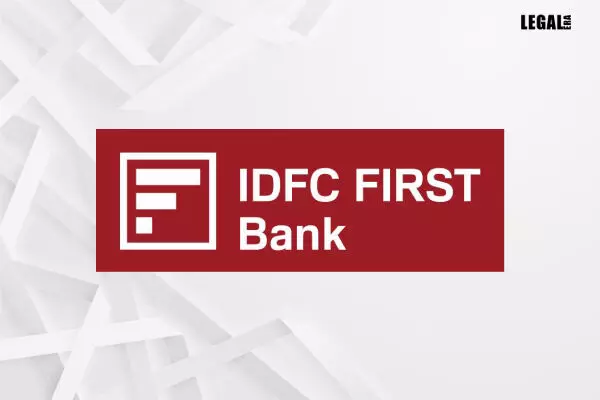- Home
- News
- Articles+
- Aerospace
- AI
- Agriculture
- Alternate Dispute Resolution
- Arbitration & Mediation
- Banking and Finance
- Bankruptcy
- Book Review
- Bribery & Corruption
- Commercial Litigation
- Competition Law
- Conference Reports
- Consumer Products
- Contract
- Corporate Governance
- Corporate Law
- Covid-19
- Cryptocurrency
- Cybersecurity
- Data Protection
- Defence
- Digital Economy
- E-commerce
- Employment Law
- Energy and Natural Resources
- Entertainment and Sports Law
- Environmental Law
- ESG
- FDI
- Food and Beverage
- Gaming
- Health Care
- IBC Diaries
- In Focus
- Inclusion & Diversity
- Insurance Law
- Intellectual Property
- International Law
- IP & Tech Era
- Know the Law
- Labour Laws
- Law & Policy and Regulation
- Litigation
- Litigation Funding
- Manufacturing
- Mergers & Acquisitions
- NFTs
- Privacy
- Private Equity
- Project Finance
- Real Estate
- Risk and Compliance
- Student Corner
- Take On Board
- Tax
- Technology Media and Telecom
- Tributes
- Viewpoint
- Zoom In
- Law Firms
- In-House
- Rankings
- E-Magazine
- Legal Era TV
- Events
- News
- Articles
- Aerospace
- AI
- Agriculture
- Alternate Dispute Resolution
- Arbitration & Mediation
- Banking and Finance
- Bankruptcy
- Book Review
- Bribery & Corruption
- Commercial Litigation
- Competition Law
- Conference Reports
- Consumer Products
- Contract
- Corporate Governance
- Corporate Law
- Covid-19
- Cryptocurrency
- Cybersecurity
- Data Protection
- Defence
- Digital Economy
- E-commerce
- Employment Law
- Energy and Natural Resources
- Entertainment and Sports Law
- Environmental Law
- ESG
- FDI
- Food and Beverage
- Gaming
- Health Care
- IBC Diaries
- In Focus
- Inclusion & Diversity
- Insurance Law
- Intellectual Property
- International Law
- IP & Tech Era
- Know the Law
- Labour Laws
- Law & Policy and Regulation
- Litigation
- Litigation Funding
- Manufacturing
- Mergers & Acquisitions
- NFTs
- Privacy
- Private Equity
- Project Finance
- Real Estate
- Risk and Compliance
- Student Corner
- Take On Board
- Tax
- Technology Media and Telecom
- Tributes
- Viewpoint
- Zoom In
- Law Firms
- In-House
- Rankings
- E-Magazine
- Legal Era TV
- Events
DCDRC Dismisses Complaint Against IDFC Bank And Ebix Travels Terming Events Complex And Lacking Evidence And Witnesses

DCDRC Dismisses Complaint Against IDFC Bank And Ebix Travels Terming Events Complex And Lacking Evidence And Witnesses
Advises the complainant to approach an appropriate forum and request for condonation of the delay under the Limitation Act
The Ambala, Haryana bench of the District Consumer Disputes Redressal Commission has dismissed a complaint against IDFC First Bank and Ebix Travels Pvt Ltd, stating that the allegations involved complex events and required more evidence and the presence of witnesses.
The bench of Neetu Sandhu (president), Ruby Sharma (member) and Vinod Kumar Sharma (member) held that the complainant was at a liberty to pursue the matter in an appropriate forum.
The complainant was offered a credit card service while opening an account at the IDFC Bank. On being assured of satisfactory service, he accepted it with a sanctioned amount of Rs.1,85,000.
Later, while utilizing the card, he booked two air tickets through Ebix Travels for a New Delhi-Dublin, Ireland-New Delhi round trip. Despite paying Rs.1,07,112.95 via the credit card, the transaction was declined due to non-capture of the amount.
However, the bank deducted the amount with interest from the complainant's credit card balance and bank account.
The complainant stated that despite repeated requests and legal notices, the bank continued to deduct instalments illegally. He continuously communicated with the IDFC and Ebix Travels but did not receive a satisfactory response.
Aggrieved by the situation, the complainant approached the DCDRC and filed a complaint against the bank and Ebix Travels.
IDFC contested the territorial jurisdiction of the District Commission to handle the complaint. It said that the complainant was not a consumer and the complaint lacked maintainability due to party joinder and misjoinder issues.
The bank added that the complaint was time-barred and since the relation between the bank and the complainant was contractual, it was not subject to consumer complaint regulations. It argued that the complainant availed a flex money facility to book tickets through Ebix Travels and failed to repay the borrowed money, resulting in a Rs.1,50,041.96 pending amount.
Meanwhile, Ebix Travels highlighted the terms and conditions of the agreement and argued that its role was limited to a service facilitator, not a direct service provider. The travel company referred to several clauses in the agreement to disclaim the liability for issues including delays, cancellations, or deficiencies, which were beyond its control. It stated not receiving payment for the cancelled transactions and not being informed by the complainant about it.
The DCRDC noted that despite numerous submissions and contentions, neither IDFC Bank nor Ebix Travels provided reliable evidence to support their claims. Considering the complexity of the events and the need for substantial evidence and witnesses to ascertain any deficiency in service, the District Commission held that the matter could not be resolved through summary proceedings.
The judges stated that consumer forums must assess the quality and nature of the claim, the evidence required, and the legal issues involved, before deciding whether the matter should be adjudicated by civil courts. The purpose of such forums was to provide speedy remedies, avoiding delays typical in civil courts.
Thus, the District Commission dismissed the complaint, albeit, providing the complainant the liberty to seek remedy before an appropriate court of law. The judges suggested requesting the complainant for condonation of the delay under Section 14 of the Limitation Act, 1963, for the time spent before the DCDRC.


